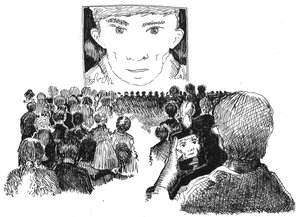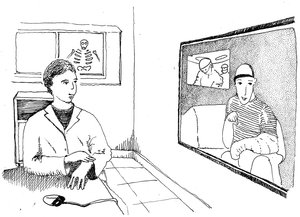Digital Citizenship – Part I – How citizens are getting more and more connected
Identifying the evolution of citizenship as an achievement and relating it to one’s own innovation in technology is a rich subject, replete with analysis everywhere. These analysis take various forms. We will seek to list how this relationship can impact citizenship in the future, when it will have greatly broadened its digital aspect.

Citizenship is something greater than nationality because it involves the rights and duties associated with the country or region of an individual. Digital citizenship implies that a citizen uses information and communication technology to engage in the environment in which he or she lives.
In order to know how digital a citizen is, or how much a country offers for such a possibility, it is necessary to realize that there is today an intangible environment, difficult to understand at all times present in the information networks and in which people include themselves, voluntarily or not, in each place. A diversification of sensors, cameras, equipment, software, data banks and massive statistics in several providers do not stop producing data of each one, of movements, of usage or consumption, of everyone’s choices, of economic and social participation. These data may or may not be made available to all. Part are used with interests in financial returns and one part has as main interest to provide some kind of welfare to each individual, such as social returns.
As can be deduced, powerful tools contained in this vast information factory can be used positively or negatively in relation to the well-being of the digital citizen.
The provision of information can be private, with direct or indirect financial return (via merchandising, promotion of visits in digital networks, etc.) or public, where a government provides the citizen with facilities in the use of public services and offers some digital channels to do use their rights and even have support to fulfill their public obligations.
In addition to all direct documentation on public services that the citizen inserts into government sites, a public information ecosystem begins to be exchanged between the agencies and entities that regulate our life, and these bodies and their managers of technology begin to carry out innovative platforms such as Big Data and concepts like Cloud Computing and Internet of Things (all these subjects covered by specific posts).
By the very nature of this information, often dispersed in diverse networks, the information that the digital citizen uses is spread in several places, in various dimensions or domains. Informal or unofficial data, gain a useful character in this context. And the source, the process of information creation becomes secondary in this new digital world, and takes place a constant use of more and more dispersed information.

With the expansion of a new digital world, more populous, diversified, perennial data, the citizens will have an expanded view of their reality and participation in their environment. However, their perception of the characteristic, the source of the information, of their peers, of the environments in which it moves will become less clear. The invisible exposure to the digital world will interact with the citizens giving them inputs of various actions that they be taken when relating to public and private individuals with entities.
We should not stick to the usual forms of connections today, for surely the digital citizen of the future will use or wear some monitoring devices, decision support, and information of universal reach, everywhere, in all moments. Indeed, the delivery of public service itself versus the private offer will be impacted, given the dispersed nature of the information of complex services flows by various agents, we will have a set of hybrid providers of services and knowledge.
Digital citizenship, in the context of the public agent, will have a greater perception for its regulatory roles, security and quality of services, rather than a direct service provider in many cases. This will mean a shift of the power axis over individuals and mechanisms of self-control and management will surely prevail.
In the context of private providers, the transformation we have already seen will intensify, and business models will renew dramatically, particularly in the financial, entertainment, media, education, and knowledge industries. Perhaps in the historical context of the scholars of societies, an era of knowledge becomes a de facto reality from a digital world, with all people exercising their role in a connected way, with a new conception of what citizenship is.
We become accustomed to perceive this great turning point. We realize that several “things” has entered the digital world, a song, some reading, a simple typing, industrial automation, electronic monitors… when finally feed some equipment that computes this information and allows to transform them and uses them differently. This was the technological revolution of the end of the last century, which now consolidates. A smarter way to capture and map information will increase the amount of data captured and link them to groups and individuals. The social and physical universes will be understood in an unprecedented manner, in a more profound and holistic aspect.
In order for check how Citizenship is practiced in a more or less digital way, it is possible to measure some aspects of how a certain society coexists with technological innovations:
- How many impacts on society are perceived that give signs of the exercise of digital citizenship?
- How in society does the individual demand interactions with the digital world?
- How does the scientific community train itself and transfer its applications and innovation inputs with the purpose of digital practice?
Thus, following this series of articles, we will quote “Eight questions to check the digital maturity”. Do not miss it 🙂
(to be continued).